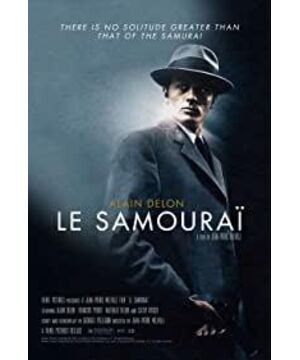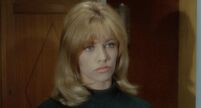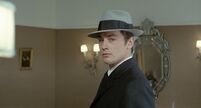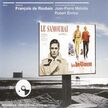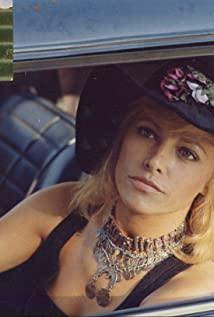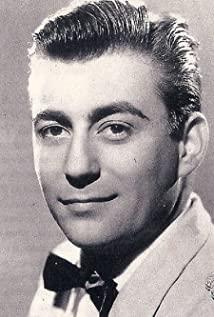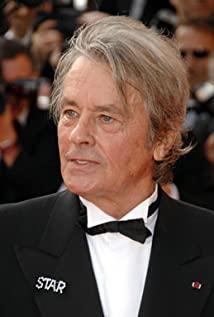Under Melville's icy camera, the killer Jeff is taciturn, his stern face is wrapped in a windbreaker with a raised collar, and he travels alone through the city day and night. Taking off Zorro's romantic mask, Alain Delon is still heartbreakingly beautiful under the shadow of the turtleneck hat. Those ice blue eyes are like the streets of Paris in the last century, cold, gloomy and impersonal. It seemed to be filled with some kind of death. As a lone killer, Jeff is always imprisoned by the law of the jungle that belongs to the samurai. He kills, prevents being killed, and kills. This is a paradox of survival and a self-contradictory world view. His existence is only to kill, and Endless killing will eventually kill this existence.
"A samurai can endure the most unbearable loneliness in the world, perhaps only a tiger in the forest can match it." This excerpt from the "Bushido Quotations" first appears in the title sequence, with the setting of a darkened forest room and the mourning caged bird. Melville himself is a director with the temperament of a loner, who endows the camera with an existential interpretation with his own understanding of life and death. Although it is a movie that describes the violent society of gangsters, it does not have too many action scenes, and in the very few shooting scenes, it is handled cleanly and without missing a shot. The whole film is filled with a sense of rational loneliness, but it seems irrational in the interpretation of the plot and the way of expression: the dialogue is sparse and the plot is minimal, but it has given Alain Delon enough attention to the camera, so that the whole film is irrational. Looks like his solo show. This character has no identity, no relatives, and the only place to live is a spiritual secret room, where he smokes, sleeps, bandages wounds, pityes himself in front of the mirror, and raises the caged bird that symbolizes his soul. At night, he wraps himself in a trench coat and a top hat through the streets of Paris, returns to his den at dawn, and occasionally inhabits the gentle village of his confidante, but he just keeps silent, not even courting, not asking for retribution, not asking time. Such a nihilistic figurative entity possesses a beauty that is rare in the world, and the stern temperament of gestures is still suffocating after a century, so that this image finally left an unattainable stroke in the history of film, so countless successors The fighters continued their lonely journey as lone killers on screen in turtleneck trench coats, while taking off their hats to the forerunner.
As a killer, Jeff is ruthless, slaughtering countless bodies in this dark jungle of reinforced concrete, neat and merciless, but the title gives him another identity - a samurai. Europe in the 60th century was in a period of revolution, and the influence of the oriental philosophy of destiny led by Japan on the style of the new wave can be seen. As a killer, Jeff's words and deeds are strictly controlled by the spirit of Bushido, as if there is a moral barrier in addition to ruthless killing, similar to the knight's declaration in the Middle Ages, once this barrier is broken, he will cease to exist. The progress of the plot in the film undoubtedly explains this: after being caught in an action, the female pianist concealed his crime from the police for some purpose, and as a killer instinctively, he took a gun and questioned him until the end Didn't pull the trigger either. And after he fell under the trigger of justice, it was discovered that there was no bullet in the pistol wrapped in white gloves. It was empty, like the heart of a killer, but it was too heavy to speak.
Under the masculine and hard style that fills the whole film, the appearance of the female characters is like the soft waves of the deep sea and the soft light of the night, giving care to soothe the soul. Jeff has played against two women: the tender and beautiful lover is his safe haven, the only thing that brings him tenderness other than the bird, and he trusts her completely, but does not depend on her, even when they are alone. She also kept her fatalistic silence, except for the hug before she left - she knew that he needed her, and she never broke this silence, but only fulfilled his spiritual needs wholeheartedly within her ability. In the end he kisses and hugs her, which is a reward, a show, and a goodbye. Their feelings are restrained and almost ruthless, but deep beyond life and death. The female pianist, another female character who is also one of the protagonists, doesn't feel intuitive. When he refuses to identify Jeff to the police, everyone assumes it's another standard cliché love story, and when Jeff kills his boss and discovers that she's his lover, the plot takes a surprising turn. There is no doubt that this woman is a loner who can indulge herself at the piano, even in the face of death. So she was silent when confronted with Jeff's pistol, then asked casually, smiling, "Why?" as if not expecting an answer. In fact, she will never get an answer. The gun rang, but it was the man with the gun who fell. The most famous, ruthless and most beautiful lone killer in film history fell under the bullet of authority that symbolized justice. The moment Alain Delon was shot was enough to make people feel Remembering it for a lifetime, it was an exaggerated and distorted performance, but it presented a heart-piercing drama and tragedy. The tragic beauty of fatalism.
Why? This question is left unresolved by the end of the film, or perhaps already resolved, and the killer uses his death to explain everything. Existentialist philosophers have long predicted that the only problem with philosophy is death. Human existence itself has no meaning, but people can create themselves on the basis of existence, even if the price is to pay with their lives. And as a killer, he has spent his life explaining the only problem, and now he can die, completely leaving that dead room, those days and nights of independence, and this messy, ruthless, but occupied by the logic of many powers. Cold Century. This is not destined to belong to the century of the lone killer.
The body is like a tiger in the forest, and the heart is like a bird in a cage. His body may be lost in the depths of the jungle, but the bird can finally break through the cage. As Hesse described in his book many years ago - "The rope breaks and the bird is free."
View more about Le Samouraï reviews


